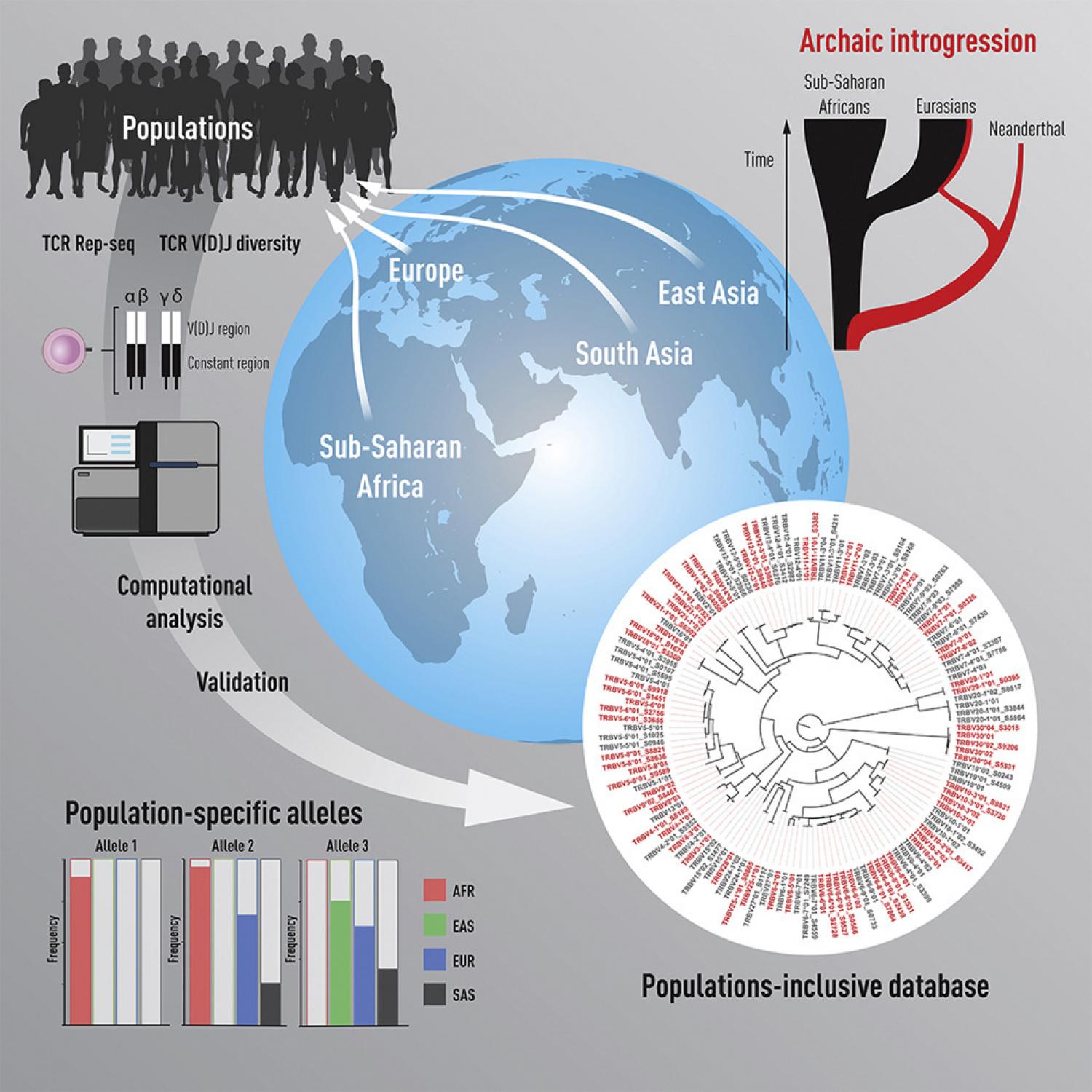
Human T cell receptors (TCRs) are critical for mediating immune responses to pathogens and tumors and regulating self-antigen recognition. Yet, variations in the genes encoding TCRs remain insufficiently defined. Detailed analysis of expressed TCR alpha, beta, gamma, and delta genes in 45 donors from four human populations—African, East Asian, South Asian, and European—revealed 175 additional TCR variable and junctional alleles. Most of these contained coding changes and were present at widely differing frequencies in the populations, a finding confirmed using DNA samples from the 1000 Genomes Project. Importantly, we identified three Neanderthal-derived, introgressed TCR regions including a highly divergent TRGV4 variant, which mediated altered butyrophilin-like molecule 3 (BTNL3) ligand reactivity and was frequent in all modern Eurasian population groups. Our results demonstrate remarkable variation in TCR genes in both individuals and populations, providing a strong incentive for including allelic variation in studies of TCR function in human biology.
